As England’s football team prepare to face Iran in the first match of their World Cup campaign, the backdrop is already miserable. Football’s most prestigious tournament is taking place in the wrong season in a deplorable state where workers have died in the construction of stadiums. To make matters worse, the Three Lions’ first opponents are in the midst of a brutal crackdown back home on those who have dared speak out in opposition. Hundreds have died; thousands more have been locked up.
Russia, of course, was booted out of the tournament months ago following its invasion of Ukraine. As Iran’s leaders intensify their repression on the streets of Tehran, should England’s first opponents face a similar punishment? If we’re in the business of stopping nations from participating in international sport because of disgraceful behaviour of their governments, why is the brutal suppression of protest movements – or the decades-long empire-building that Iran’s government has engaged in – not treated in the same way as Russia’s warmongering?
Russia was banned from sport for two reasons. The first was the unique shudder of disapproval experienced by international bodies when Russia invaded Ukraine. And the second was that, in recent years, Russian athletes have spent rather a lot of time being banned from competing – and with good cause.
As Iran’s leaders intensify their repression on the streets of Tehran, should England’s first opponents face a similar punishment?
Russia’s invasion is barbaric and brutal. There is no justification for it. But the way world football and other international bodies responded to the war demonstrates something else: a view that football might exist in a vacuum in which outside events should not interfere. Gianni Infantino, the president of Fifa, football’s governing body, plaintively and feebly summed up that view when he called for a one-month ceasefire in Ukraine so that his tournament wouldn’t have such a grim background.
The sound heard a thousand miles away was 40 million Ukrainians, in unison, taking a brief break from fighting for their lives to roll their eyes. They didn’t get to pick the time they were attacked, nor can they leave their liberation half-done. Of course, the fighting has continued – and Russia has banned from taking part in the Qatar World Cup. But while the decision to ban Russia is an understandable and justified one, there is a double standard at play here: wars between countries result in harsher restrictions when it comes to playing sport than civil wars, in which the casualties and death and destruction can be just as high.
Take Syria, where, for a decade now, fighting has been raging. Despite the enormous bloodshed, there have been few prohibitions on the Syrian football team (a token ban on playing at home notwithstanding). This despite the fact that some ex-Syrian players took up arms against the regime of Bashar al-Assad and were killed by the state in the past eleven years.
The Afghan cricket team, too, continues to function in the new period of Taliban rule. Afghan youth athletes may have died trying to flee the country in the collapse of August 2021, but that does not appear to trouble the International Cricket Council, which has allowed Afghanistan to play on.
Civil conflicts, it seems, are effectively fine, by the apparent logic of Fifa and Uefa, and the International Olympic Committee. So is Russia being treated differently? If so, perhaps the reason might be that international sport is used to banning Russia. It knows how to react to a scandal in Russian athletics. When authorities are uncertain, they can easily consult the long history of Russian athletes cheating – especially with drugs – in almost all competitions with competent testing regimes.
Before the invasion of Ukraine, Russians attended the Olympics as ‘independent athletes from Russia’, rather than emissaries of the Russian Federation. Because the Russian anthem was banned from the Tokyo Olympics last year, Russians stood on the podium to the sound of Tchaikovsky’s piano concerto No. 1.
Even chess grandmasters cannot compete under the Russian flag, with Ian Nepomniachtchi, the world championship challenger, taking part under the flag of the Chess Federation of Russia rather than his national emblem in the World Chess Championship of 2021.
Iranian athletes themselves have been tarred by nothing so disreputable and so systematic as the Russian penchant for cheating – at least not openly. That perhaps accounts for some hesitance in official circles when it comes to deciding to kick them out of international tournaments.
But another significant irony in allowing Iran to play on in Qatar, but not Russia, is that Iranian athletes have suffered terribly at the hands of the state. In the past, athletes who have competed against Israelis, rather than pulling out as the regime demands, have been punished and even forced into exile. Iranian women athletes who, in the past few months have unveiled themselves to compete, face punishment if they go home. Many female Iranian athletes have sought asylum while competing abroad. You can hardly blame them.
The cruelty Iran shows to its sportsmen and women does not stop there. The Iranian state put Navid Afkari, an internationally competitive wrestler, to death in 2020 on fabricated charges for his involvement in protesting against the government in 2018. The state confected a murder allegation, tortured a confession out of Afkari, and then killed him suddenly without warning, despite pleas for clemency from the International Olympic Committee (IOC).
If you were expecting this barbarism to arouse any solidarity in the IOC, I’m afraid you’d be left waiting: they mulled expelling Iran, then did nothing – as always.
There is no universal answer to this sporting dilemma. Russia ought to be banned for its massive, decades-long perversion of athletics and sport through cheating. Its invasion of Ukraine gave international bodies an opportunity to kick Russia out, but it shouldn’t have come to that. Does this mean Iran, too, deserves to be banned? If we were to kick out every country that invades a neighbour, every regime that fights a civil war, or arms proxy forces abroad, or works migrant slave labourers to death to build stadiums, who would be left to fill out the group stages?
Fifa shrugs its shoulders. Je suis désolé. There are still games to be played, after all.
The post Should Iran be allowed at the World Cup? appeared first on The Spectator.
Got something to add? Join the discussion and comment below.
Get 10 issues for just $10
Subscribe to The Spectator Australia today for the next 10 magazine issues, plus full online access, for just $10.

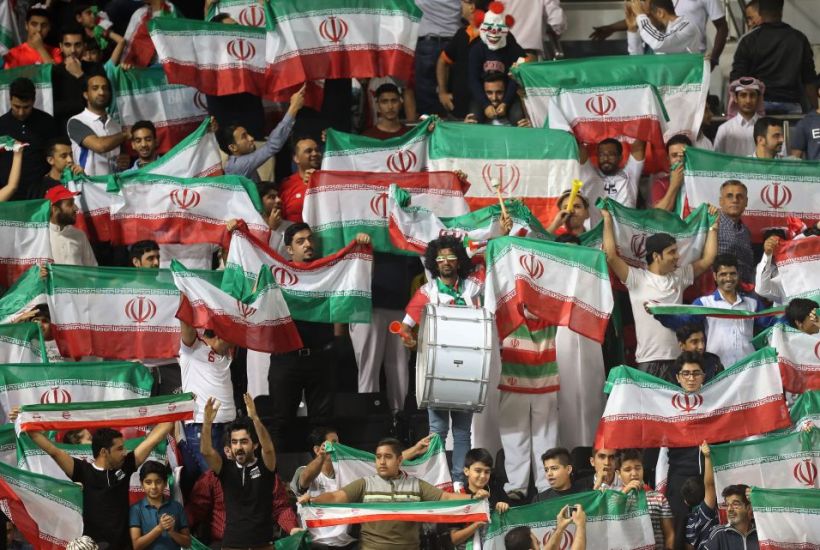


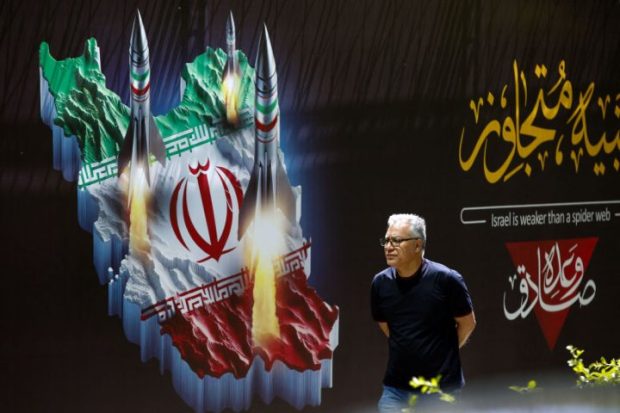
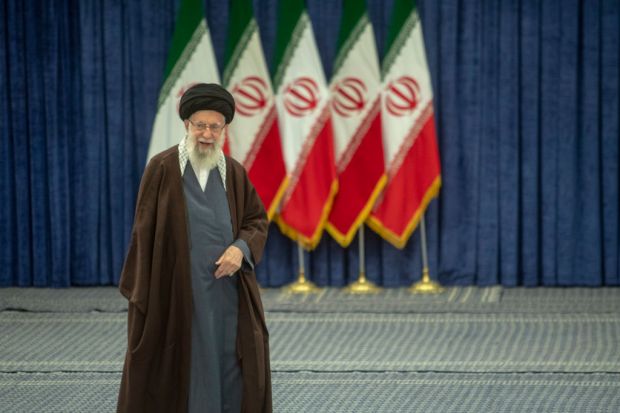
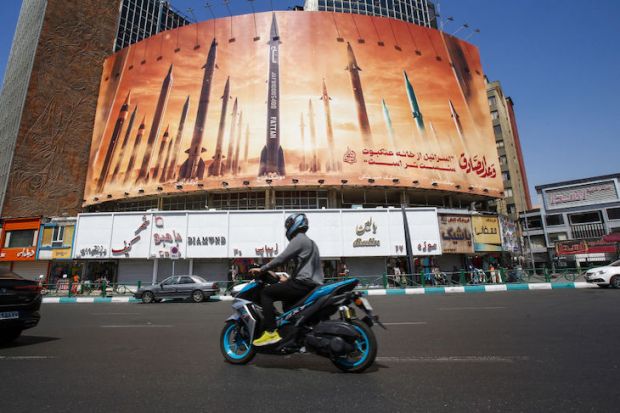
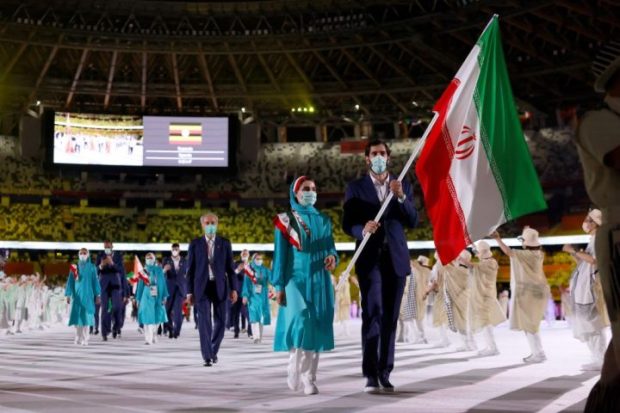












Comments
Don't miss out
Join the conversation with other Spectator Australia readers. Subscribe to leave a comment.
SUBSCRIBEAlready a subscriber? Log in